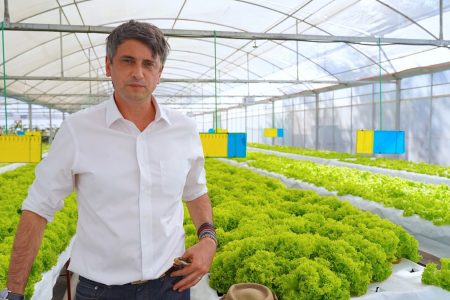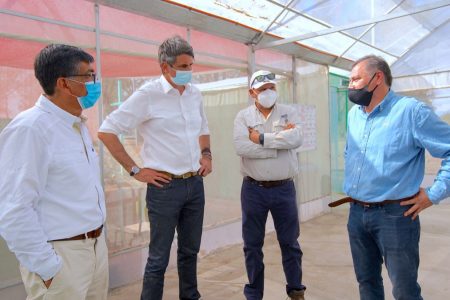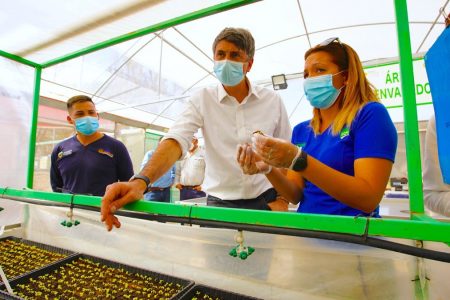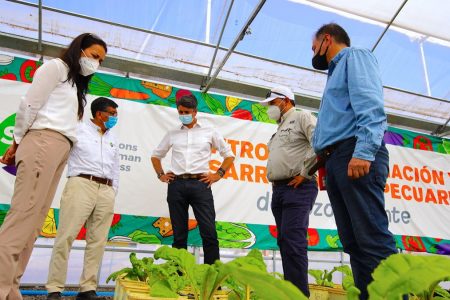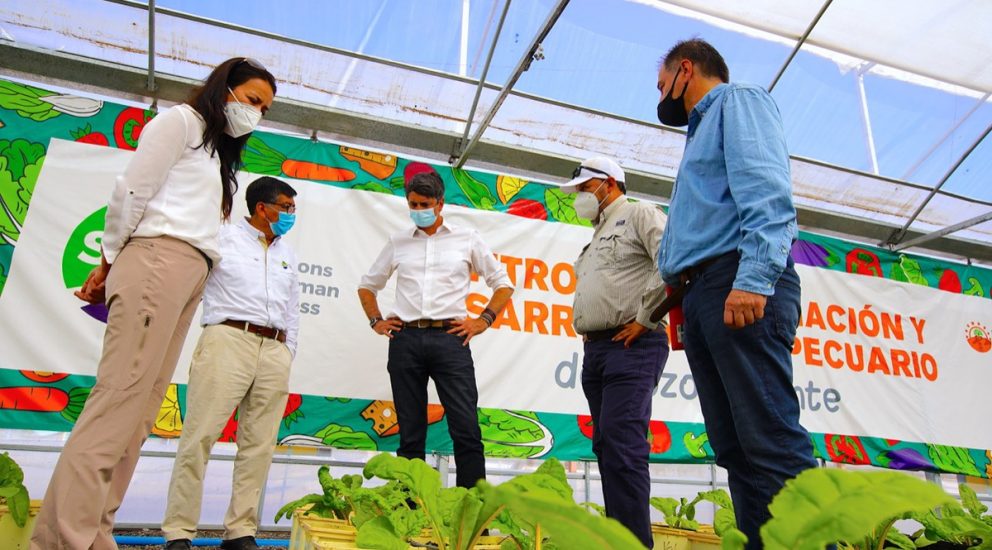
Science Minister Highlights the Pozo Almonte Agricultural Research and Development Center’s Collaborative Efforts
20/May/2021
Chilean Minister of Science, Technology, Knowledge and Innovation and his delegation visited farmers from Tamarugal as part of SQM’s Atacama Tierra Fertil Program. The visitors learned firsthand about the different innovations related to the La Tirana greenhouse, emphasizing sustainability and circular economy efforts.
Pozo Almonte Agricultural Research and Development Center welcomed Chile’s Minister of Science, Technology, Knowledge and Innovation, Andrés Couve; the regional ministry official for northern Chile, Daniela Barría; and SQM’s Director of Communications, Sustainability and Public Affairs, Pablo Pisani. The visitors toured the facilities and focused on initiatives, including the floating root watering system, which optimizes the yield of water resources to produce different hydroponic crops under extreme climate conditions.
“One of the ministry’s missions is to decentralize production and transfer knowledge. We have been working on a nationwide decentralization effort that goes beyond scientific research to include institutions. We want to set up an ecosystem where academia, the public and private sectors and civil society participate. It is comforting to see private-sector research and development that contributes to knowledge that adds value to the social fabric of the region,” said the minister.
He went on to add that the concepts of sustainability and technology are essential to the future and development. “Communities need to nourish themselves with new knowledge on which to base development of production processes.”
SQM executive Pablo Pisani remarked on the minister’s visit: “On the tour, we demonstrated the progress made by the Pozo Almonte Agricultural Research and Development Center. Through innovation and working hand-in-hand in committed collaboration with the municipality of Pozo Almonte and local farmers, we are farming in the middle of the Atacama Desert and using available water efficiently.” He added, “The experience is replicable in other towns in northern Chile.”
Remarking on the Atacama Tierra Fertil Program, which began in 2008 in San Pedro de Atacama, the executive highlighted its more than ten years of contribution to northern Chile “supporting and developing agriculture in these remote areas. Today, the program is in different towns in the Antofagasta and Tarapacá regions. It aims to improve agriculture and contribute to the regional economy and sustainable agriculture that the area needs,” he added.
